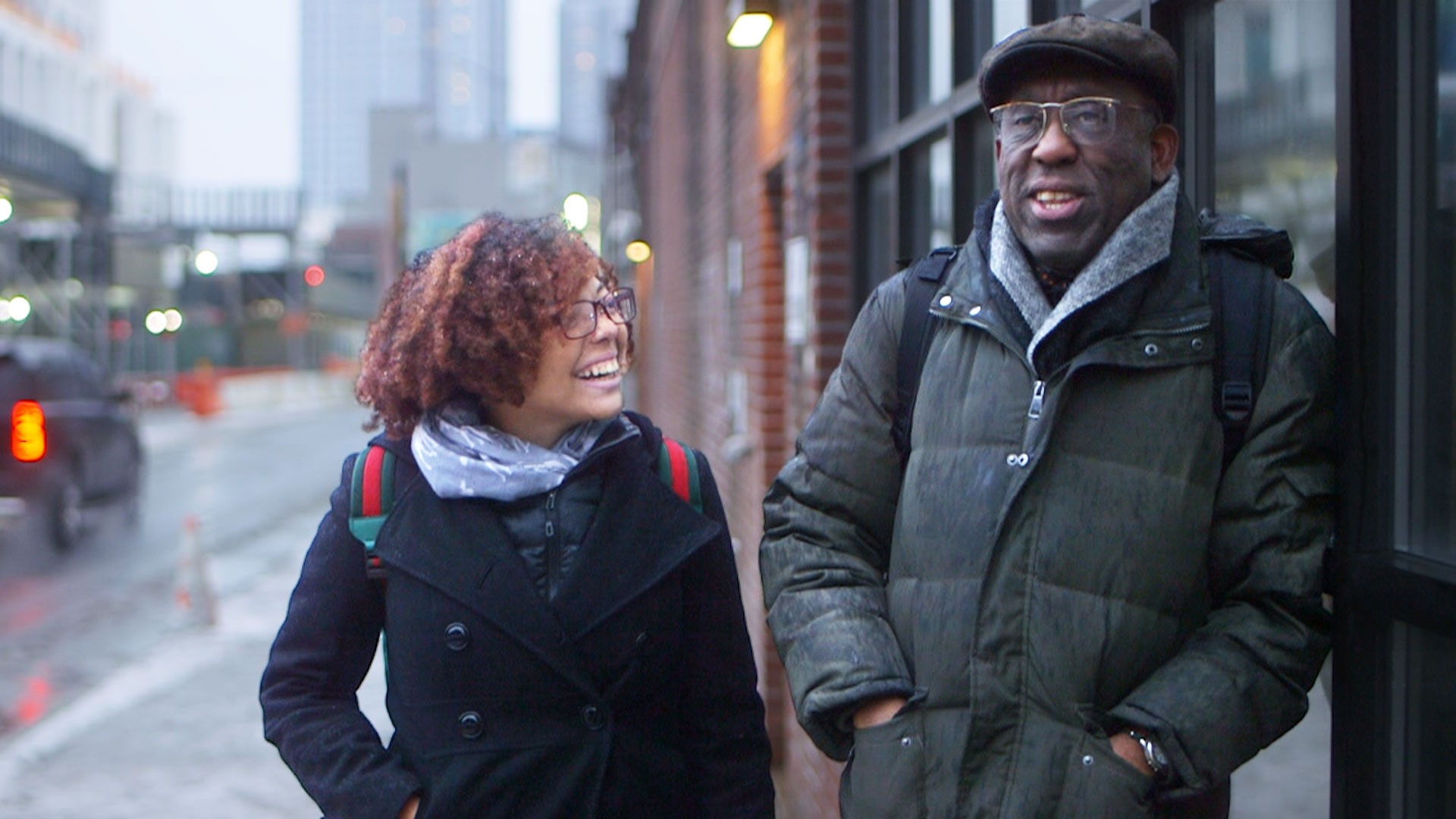Prime Minister Justin Trudeau looks on as Deputy Prime Minister and Finance Minister Chrystia Freeland responds to a question during a news conference on Parliament Hill in Ottawa, Tuesday, Aug. 18, 2020. Photo by THE CANADIAN PRESS/Adrian Wyld
Canada’s long-criticized social assistance programs may be getting a massive overhaul, according to a report from Reuters. Sources told the media network that with a new federal finance minister in place, Canada’s Prime Minister Justin Trudeau is planning sweeping changes to Canada’s social welfare systems as part of a pandemic recovery program.Bill Morneau, the country’s fiscally conservative former finance minister, announced he was resigning on Monday. Sources told VICE News that there was a growing rift between the men over Trudeau’s COVID-19 spending programs. Trudeau replaced him with his Deputy Prime Minister Chrystia Freeland, largely considered to be more progressive than Morneau. She’s now holding down both jobs.Anti-poverty advocates have long said Canada’s welfare systems over-regulate and humiliate the people that need them, forcing them through a dizzying maze of rules and invasive investigations to qualify for and maintain an income that isn’t enough to live on, let alone plan for the future. Instead, the systems could be replaced with a basic income.Not a single Canadian province offers social assistance or welfare rates that bring people even close to the poverty line, according to numbers from Toronto’s Maytree Foundation. For a single person in 2018, the best rate was in Newfoundland and Labrador, at $11,383 for the year—more than $8,000 lower than what they’d need to live, according to the market basket measure.Advocates say governments’ impulses to spend money over-regulating the poor are influenced by Reagan-era “welfare queen” myths of the criminal poor, which perpetuate racism, sexism and classism and that it’s time to tear them down, and build a new system that gives people the money they need—without the matrix of rules and crushing investigations—to be brought up to the poverty line.“That’s in fact what a basic income is,” said Evelyn Forget, an economist at the University of Manitoba who’s studied basic or guaranteed income for years.Most of the basic income proposals being taken seriously in Canada right now recognize that basic income-like programs already exist via the federal child tax benefit and the guaranteed income supplement for seniors, Forget said. “They’re not humiliating programs, they don’t have to go through the hurdles that adults have to go through. And the question is, why can't we take people between the ages of 18 and 64 and create a similar kind of a program that just says, ‘Yes, people have certain basic needs, and they should have enough money to live with dignity?’”Canada has had two solid runs at a basic or guaranteed income program, first in the late 1970s in Dauphin, Manitoba and then with the Ontario Basic Income Pilot Project, which began in 2018 but was cancelled ten months later by the incoming Progressive Conservative government led by Doug Ford. With the COVID-19 pandemic affecting Black, Latino, Indigenous people and people of colour, as well as poor and precariously-living people at staggeringly disproportionate rates, there’s a renewed push for basic income in Canada. Trudeau’s recent announcement of the end of the Canada Emergency Response Benefit (CERB), a relief program that deposited $2,000 a month into the bank accounts of over 8.5 million Canadians who lost work because of the pandemic, also invigorated calls for the move. On Thursday, the Liberal government announced a month-long extension to CERB, among other changes to employment insurance.In May, 50 Canadian senators called for a universal basic income (UBI). NDP MP for Winnipeg Centre Leah Gazan tabled a motion to convert the CERB into a permanent guaranteed basic income last week. There are regional movements, too: this week, more than 20 community groups from Newfoundland and Labrador signed a letter to the federal government asking, among other things, for a basic income pilot project in the province.Forget studied the project in Manitoba, called Mincome. Leah Hamilton, an associate professor of social work at Appalachian State University, studied the Ontario project, looking at how a basic income affected folks who had previously been on social assistance or welfare programs, which include disability programs.“In the U.S., a lot of our means-tested benefits are in the neighbourhood of 20 to 25 percent in just administrative costs, at least. But our social security system, which is our retirement system, is a lot simpler to administer, it’s all online, everybody gets it … there’s no caseworkers to check, ‘Are you doing X,Y,Z?’, you don’t have to submit eligibility forms every two months. The overhead cost for that is something like three percent,” she said.Anti-poverty advocate John Stapleton agrees. “Abolish the welfare system,” he said. He worked for the Ontario government for 28 years in social assistance policy. Stapleton calls Canadian social assistance programs “confiscation machines,” and wants them replaced with housing benefits and refundable tax credits to bring people up to the poverty line. The child tax benefit and the seniors’ guaranteed income supplement both do a pretty good job, he said, so it makes sense to keep them.He estimates it’d cost around $40 billion—near the low end of the estimates presented by Canada’s Parliamentary Budget Officer in July. The pandemic is a huge opportunity for change, Stapleton said, but he worries discussion about a basic income is often stifled by the misconception that it necessitates bulldozing government programs and giving everybody a cheque.Doug Pawson, the executive director of End Homelessness St. John’s, signed on to the letter from Newfoundland and Labrador organizations asking for a basic income, but he worries UBI is a gun-and-popsicle-sticks solution to a system broken well beyond welfare.“If the system is broken, let's fix the system,” he said.“That is a straight-up funnel for money to go to the top,” he said. “Who’s going to pay for UBI if nobody pays for employment?”Forget acknowledges that the basic income won’t solve everything. People living in cities like Vancouver or Toronto with soaring rents are going to need more help with their housing costs, she said. And programs where social assistance pays landlords 100 percent of the rent will have to change or landlords will pocket all the new money, she said.But she sees potential for a minimum income to put pressure on employers to offer higher wages and better working conditions.Follow Sarah on Twitter.
The pandemic is a huge opportunity for change, Stapleton said, but he worries discussion about a basic income is often stifled by the misconception that it necessitates bulldozing government programs and giving everybody a cheque.Doug Pawson, the executive director of End Homelessness St. John’s, signed on to the letter from Newfoundland and Labrador organizations asking for a basic income, but he worries UBI is a gun-and-popsicle-sticks solution to a system broken well beyond welfare.“If the system is broken, let's fix the system,” he said.“That is a straight-up funnel for money to go to the top,” he said. “Who’s going to pay for UBI if nobody pays for employment?”Forget acknowledges that the basic income won’t solve everything. People living in cities like Vancouver or Toronto with soaring rents are going to need more help with their housing costs, she said. And programs where social assistance pays landlords 100 percent of the rent will have to change or landlords will pocket all the new money, she said.But she sees potential for a minimum income to put pressure on employers to offer higher wages and better working conditions.Follow Sarah on Twitter.
Advertisement
‘Abolish the welfare system’
Advertisement
Advertisement

